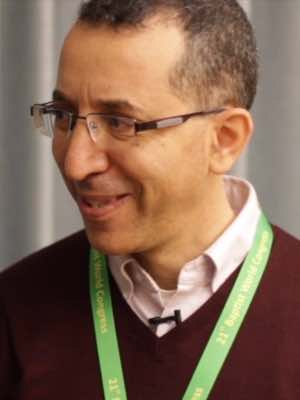I want to compare between the trip from Nazareth to Bethlehem in the first and 21st centuries.
I am a Palestinian Israeli citizen. I live in Nazareth and continually commute to Bethlehem. In fact, this Christmas I am travelling with my family from Nazareth to Bethlehem.
There are several roads that lead to Bethlehem. There are three major options: one in the east, one in the middle of the country, and one in the west next to the Mediterranean Sea.
I shall call them the eastern, central and middle roads. Which road should I choose?
My decision depends on the political situation, my identity, the cost of travel, time and traffic jams.
Jews don’t like to travel through Palestinian towns. Palestinians don’t like to travel through Jewish settlements.
In addition, there are checkpoints on the way. These checkpoints are a potential delay depending on identity, that is, Palestinian or Jewish.
If Israeli soldiers at certain checkpoints discover that I am a Palestinian, I am a potential risk in their eyes. It means delay in my trip.
In short, travelling is a political decision connected to my identity.
As I reach Bethlehem, I usually go through a neighboring town called Beit-Jala. At the entrance of the town, there is a big sign saying, “Israeli citizens are not allowed to enter this region by law.” However, the checkpoint is not guarded by soldiers or monitored.
Entering into Bethlehem is not only a political question, it is also a legal question.
In addition, it is a theological question. Should I break the law to enter Bethlehem?
This reality shapes my reading of the Christmas story. Politics plays a role in the trip from Nazareth to Bethlehem.
It was a political decision that is related to the identity of the holy family that led them to travel to Bethlehem. In the first century, the road options were also a political decision.
Politicians seem to control our lives as they force us to move from one place to another, and as they shape the ways we travel. However, I discover in the Christmas story that God is sovereign over the whole world.
The political realities of the world are challenged by the baby born in Bethlehem. Theology enters the world of politics to declare that Jesus is the king. Theology uses a political language to announce that the standards of God are rooted in justice, peace and mercy.
Christmas reminds me that God is interested not only in saving us from hell, but also in creating a kingdom of justice, righteousness and peace. Its king is the baby Jesus.
How should I respond when theology challenges politics?
Should I act like the magi who refuse to cooperate with Herod’s oppressive politics? They invested their money, time and lives to empower the newborn king.
Should I act like the shepherds and believe with joy?
Should I act like Mary and Joseph? They chose to become refugees and to suffer in order to support the newborn king.
It is costly when theology challenges politics. But do we have a choice?
If we want to celebrate Jesus, we need to reflect on peace, justice and love in ways that transform our violent world.
Christmas was and still is a time in which massacres happen and pain spreads because of injustices. But it is also a time of hope for unto us a king is born.
Last, what kind of theology is Christmas bringing?
While Herod is advocating a theology of hate and violence, the newborn king is accompanied with a theology of salvation. It is salvation from sins whether personal or systemic sins.
Christmas without Jesus is a curse. The Jesus of Christmas is the savior. Thus, it is worth it to make the trip to Bethlehem.
Yohanna Katanacho is the academic dean at Nazareth Evangelical College and professor of biblical studies at Bethlehem Bible College. He lives in Nazareth and continually commutes to Bethlehem. You can follow him on Twitter @ykatanacho.
Editor’s note: Video interviews with Katanacho at the Baptist World Alliance’s 2015 World Congress in Durban, South Africa, in July 2015 are available here.
Yohanna Katanacho is the academic dean at Nazareth Evangelical College and professor of biblical studies at Bethlehem Bible College. He lives in Nazareth and continually commutes to Bethlehem.

